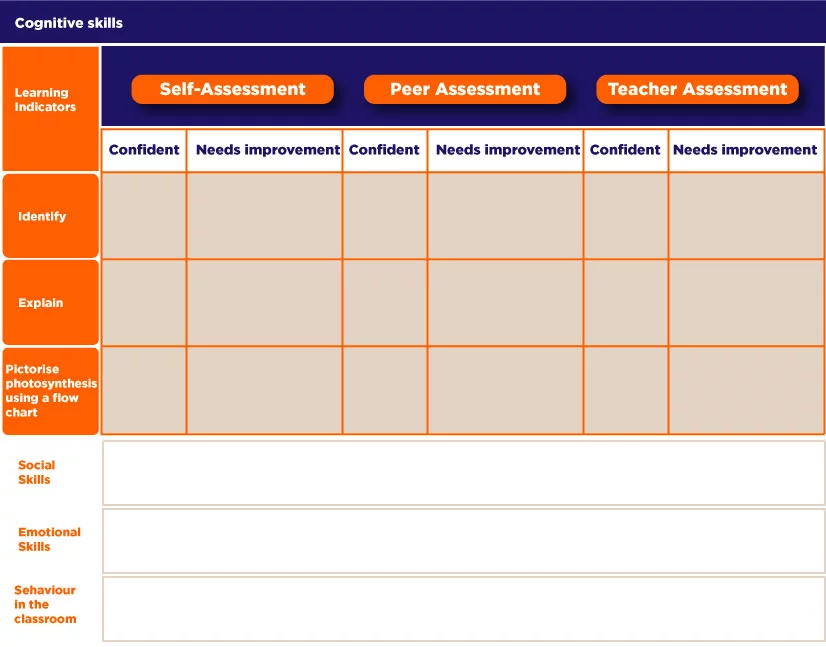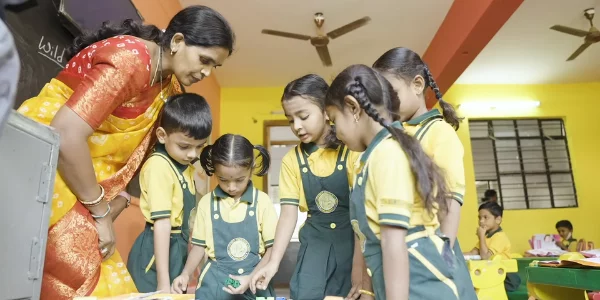A Roadmap to Assessments

Give Your School The Lead Advantage
Being an Indian, when I was studying in school and college, I didn’t know what is expected from me by the education system. When I started working in an Ed Tech company they shared with me the KRA & the expectation from me; they also analysed the work done by me. As I moved from studies to work, I experienced a paradigm shift in assessment.
I heard from many of my friends abroad that they spent the summer holidays working at various fast-food restaurants, grocery stores, or retail shops. I considered myself unfortunate that I didn’t land such a valuable professional experience at an early age. My duties during my school and college days were simple but nonetheless important. My friends who studied abroad have the core responsibilities other than studies ; they also get feedback on how to perform better in their work.
I have a special affinity toward promoting this cause in public schools, where I have spent eighteen years working in various roles, including teaching, teacher coaching, content writing, and instructional designing. In the education sector – especially in K-12 public schools – effectiveness is determined largely by student test scores on state-mandated exams. Such forms of appraisal never seemed to me fully fair or accurate in determining the effectiveness of learning or skill-building or helping school leaders build strategic development plans. When I started working, I began to understand how alternative forms of feedback, specifically 360-degree feedback, could be useful for students in improving their skills.
I got an opportunity to discuss the evaluation system with many of the school leaders. I found that:
- The evaluation system is out of date and has not undergone any transformation for decades
- The system is not inclusive enough to have any real impact
- The criteria for ratings were imperfectly defined and paradoxically interpreted
- Although a country-wide procedure is in place, it does not produce any meaningful feedback for teachers
Twenty-first century school leadership skills require principals and their teams to “transform schools into autonomous, systems-thinking organizations, revolving around professional learning communities that can embrace change and create a high-performing learning environment for students and teachers” (Moore, 2007, as cited in Moore, 2009, p. 39).
Here, I am going to discuss the 360-degree assessment & feedback mechanism envisaged by NEP 2020 in India. The 360-degree feedback program is designed to develop and enhance self-knowledge and improve effectiveness. During the teaching-learning process in school, 360-degree feedback is a method through which feedback from peers, teachers, parents, as well as a self-evaluation by the students themselves, is gathered & used for further development.
360 Degree feedback: Continuous learning
The effective 360-degree feedback encourages continuous learning on the part of the learners. This feedback mechanism is important for the learners to improve or change behaviour. It is important to set expectations during the process so that they can achieve the expectation. The best practice during this process is to understand themselves, where they stand with accurate data from multiple perspectives and to encourage openness in accepting the feedback.
Increased self-awareness among learners with the best 360-degree feedback
It is important for learners to recognize their strengths and limitations. The people around them should help them in their overall development and evolution.
There should be a good tool/rubric that can help analyse their skills and behaviour like never before. The feedback tool increases self-awareness in learners. Self-awareness leads to a focus on development and skill-building. This improves the overall performance of society.
Given the global adaptation of outcome-based education frameworks and an enhanced focus on higher-order thinking skills in learning and professional skills, the NEP promises a paradigm shift in conventional practices of curriculum design, education delivery, and assessment.
The 360-degree assessments should include self, teacher, and peer assessments. At the beginning of each session, learners should be made aware of the learning outcomes. This will help set the right expectations.
Holistic report cards in School Education
School report cards should be holistic, in the sense; they should be 360-degree, multidimensional report, reporting on the learners’ progress in cognitive, affective, socio-emotional, and psychomotor domains. The reports must create an important link between home and school, and should be accompanied by parent-teacher meetings in order to actively involve parents in their children’s holistic education and development, and provide teachers and parents with valuable data on how to support each student in and out of the classroom.
The positive impact of a 360-degree report card is that it reduces the scope of prejudices at all levels. Since the system is iterative and provides a comprehensive report, it automatically removes subjectivity. Since the system is based on the concept of continuous assessment, it assists in tracking the progress and provide timely feedback. The major objective of the 360-degree report is to create a culture of self-assessment and understanding of one’s strengths and areas of improvement. This, to my mind, is a huge jump forward in endorsing excellence.
I believe that in every unit children learn should be associated with a 360-degree report & learning outcomes should be captured using technology. Artificial intelligence should be incorporated into the assessment to capture the progress and get the data to derive conclusions on the students’ strengths & weaknesses.
Here’s a sample report card for your reference:
Concluding remarks
360-degree assessment creates opportunities for the learners in areas which otherwise were not included in the education system. This, in turn, would establish a sense of empowerment for the child and they will be inspired to engage. Such an initiative would also enhance the scope of appreciation inward or outward, ensuring bliss for the learners.
At LEAD, we empower teachers using the latest school ed-tech solutions to improve their teaching efficiency and effectiveness.
Simplifying Teaching
Readily available teaching tools and helpful resources to make teaching easy and effective.
Become an excellent teacher
Continuous training, exclusive workshops, observation, feedback, tips, tools and platforms like LEAD Academy to help improve your teaching
Network and learn with other teachers
Largest network of 25,000+ teachers and expert faculty brought together by LEAD for you to connect, learn & share best practices



